News
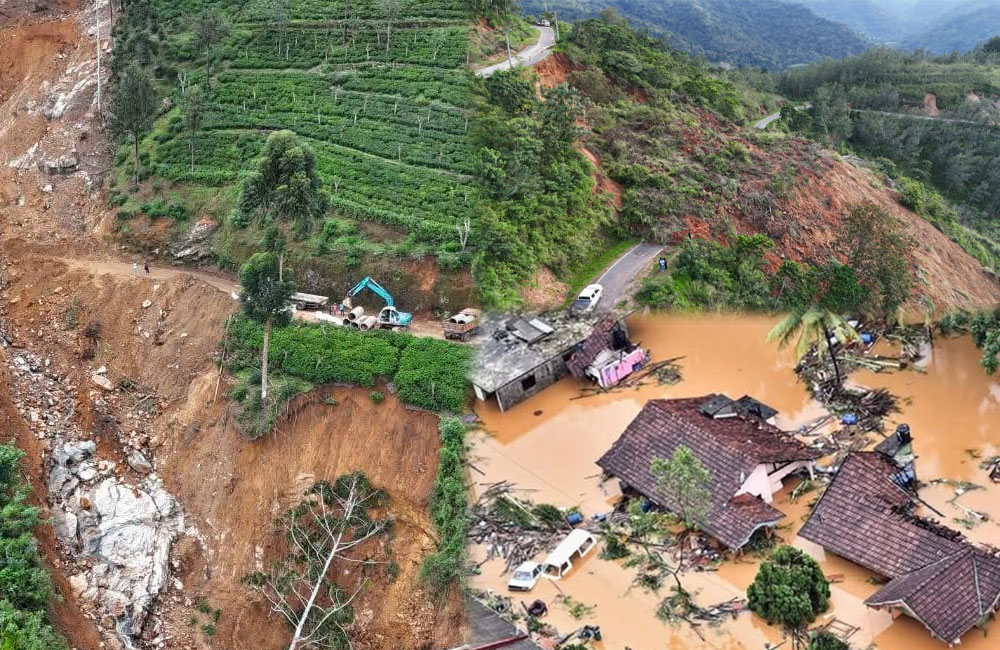
Special Leave Approved for Public Servants Affected by Cyclone Ditwah Disruptions
The government has decided to grant special leave to public sector employees who were unable to report for duty as a result of floods, landslides, and road closures caused by Cyclone Ditwah.A circular outlining the decision was issued yesterday (16) by the Secretary to the Ministry of Public Administration, Provincial Councils and Local Government and distributed to all Ministry Secretaries, Provincial Chief Secretaries, and Heads of Departments.
Under the guidelines, special leave may be approved for officers who could not travel to work due to interruptions in public transport between their residences and workplaces, as well as those affected by blocked roads or other disaster-related circumstances.Officials seeking this concession are required to submit a written application to the Head of their institution, clearly explaining the reason for their absence. The application must include a recommendation from the relevant Grama Niladhari, duly certified by the Divisional Secretary.
The circular further notes that the Head of the Institution must carefully review the certified request and, if satisfied with its validity, forward it to the Head of the Department for approval of special leave covering the specific period of absence.
The Ministry has clarified that this special leave arrangement will be applicable only for the months of November and December.
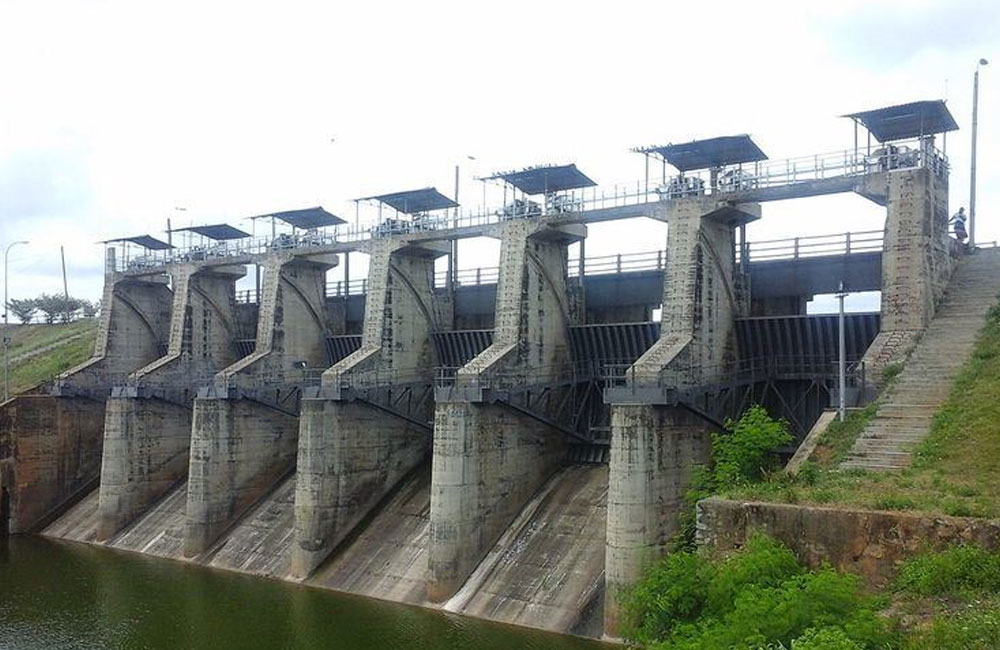
Inginimitiya Reservoir to Release Water This Morning, Public Urged to Stay Alert
The Irrigation Department says arrangements have been made to open the spill gates of the Inginimitiya Reservoir at around 7.30 a.m. today (16), allowing a discharge of approximately 1,000 cubic feet of water per second.
Following the decision, the Director of Irrigation has instructed people living in low-lying and downstream areas surrounding the reservoir to remain vigilant and exercise extra caution, as water levels in nearby waterways are expected to rise.
Authorities have urged the public to stay informed and follow safety guidance to avoid potential risks during the release.

IMF Patience Tested as Sri Lanka Seeks Fresh Lifeline
Sri Lanka’s renewed appeal for emergency funding has placed the International Monetary Fund (IMF) at a critical crossroads, as Colombo seeks rapid relief while lagging behind on long-promised reforms. The government’s request for around US$200 million under the Rapid Financing Instrument (RFI) comes even as key commitments under the Extended Fund Facility (EFF) remain unfulfilled, raising concerns over credibility, policy consistency, and reform fatigue.
The IMF has confirmed that Sri Lanka’s RFI request is now its immediate priority, with Board consideration expected shortly. The appeal is framed around urgent humanitarian needs and reconstruction following recent cyclone devastation, which has intensified pressure on foreign reserves and fiscal space. However, the emergency request has also resulted in the postponement of the Fifth Review of the EFF, delaying access to about US$347 million until early 2026.
While the Fund acknowledges the severity of the disaster, it has made clear that emergency support does not replace structural reform obligations. The postponement reflects the IMF’s need to reassess economic targets, fiscal projections, and how disaster-related spending can be accommodated within the existing programme without derailing debt sustainability.
Under the EFF, Sri Lanka faces some of the strictest fiscal benchmarks imposed in recent years. These include ambitious revenue targets, reserve accumulation goals, and politically sensitive structural reforms. Several measures due by mid-2025 including lifting the moratorium on collateral enforcement, operationalising the Sales Prices and Rents Register, and improving VAT refund mechanisms have seen uneven progress.
The situation has become more complex under the new National People’s Power (NPP) government, whose policy messaging has at times appeared inconsistent with IMF-backed commitments. Signals of hesitation over electricity pricing reforms, state-owned enterprise restructuring, and market-based adjustments have raised red flags among international lenders. The IMF has repeatedly stressed that reform momentum must not weaken, particularly after the December 2025 Board meeting was deferred to accommodate Sri Lanka’s emergency financing appeal.
The 2026 Budget will be a decisive test. It will be assessed against quantitative targets set throughout 2025 and structural benchmarks extending into early 2026, including mandatory quarterly cost-recovery reporting by the Public Utilities Commission. Any deviation could undermine confidence just as Sri Lanka seeks further external support.
Ultimately, while the IMF may approve emergency funding in recognition of extraordinary circumstances, continued delays, policy reversals, or half-measures could compel the international community to reassess the depth and durability of its assistance. For Sri Lanka, emergency relief may buy time but only reform credibility will secure long-term recovery.

No Third-Term Tests for Grades 6–10 in 2025, Education Ministry Confirms
The Ministry of Education, Higher Education, and Vocational Education has reiterated that third-term examinations must not be conducted for students in Grades 6 to 10 during the 2025 academic year.In a circular issued to education officials and school principals, the Ministry stressed that earlier instructions regarding the suspension of these examinations remain in force. Authorities were advised that the directive should be followed without deviation and fully implemented across all schools.
The Ministry further underscored the responsibility of school administrators to ensure compliance with the policy, warning that no exceptions will be permitted.
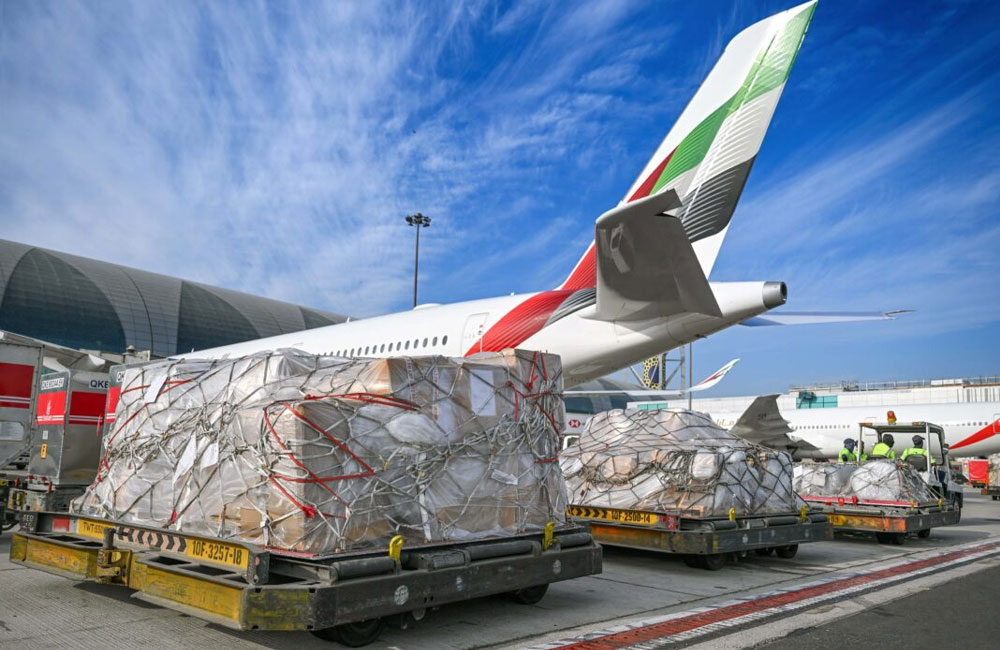
Foreign Aid Mirage Exposes Cyclone Relief Policy Failure in Sri lanka
As images of foreign aircraft unloading relief supplies dominate social media, a misleading narrative has emerged that Sri Lanka has received an unprecedented wave of international assistance following Cyclone Dithwa. The reality, however, is far more alarming. Despite widespread publicity, actual foreign aid received so far accounts for only 0.17% of the estimated cost of rebuilding the devastation caused by the cyclone.
According to Essential Services Commissioner Prabath Chandrakirthi, Cyclone Dithwa has inflicted damage requiring between USD 6-7 billion for reconstruction. Taking the midpoint estimate of USD 6.5 billion, Treasury Secretary Dr. Harshana Suriyapperuma confirmed that as of 13 December, total assistance received both domestic and foreign amounted to only USD 11 million. Even if this entire sum is generously treated as foreign aid, the shortfall remains staggering.
The contrast with Sri Lanka’s experience during the 2004 tsunami is striking. At that time, the estimated reconstruction cost was USD 1.5 billion, of which nearly USD 1.3 billion, or 87%, was mobilised through foreign assistance. The current collapse to 0.17% is not a marginal decline but a catastrophic failure of disaster diplomacy and international engagement.
A critical factor behind this gap appears to be weak policy action and poor communication by the current NPP-led government. During the tsunami, then Foreign Minister Lakshman Kadirgamar personally engaged the international community, facilitated global media coverage, and ensured that the scale of the tragedy resonated worldwide.
Today, despite written appeals, the government has failed to convene a major international donor conference or generate global urgency through sustained international media engagement.
This failure raises serious questions about leadership capacity. While the President is widely recognised for strong rhetoric and stated willingness to work for the country, effective governance demands more than speeches. “Walking the talk” requires strategic diplomacy, coordinated messaging, and credible engagement with donors. The absence of these elements has left Sri Lanka struggling to attract meaningful reconstruction support at a time of extreme vulnerability.
The confusion between relief aid and reconstruction aid has further distorted public understanding. Goods arriving by air medicines, food, equipment, and clothing constitute immediate relief, not long-term rebuilding funds. Even in this category, assistance has been far lower than in 2004. China’s contribution has dropped from 50 million yuan during the tsunami to 10 million yuan this time, while U.S. assistance has fallen from USD 134 million to around USD 2 million.
Ironically, some of the most significant solidarity has come from the Maldives, where citizens raised over USD 2.4 million, supplemented by a government donation of USD 50,000. Such gestures underscore a painful truth: Sri Lanka risks being pushed into deeper difficulty not by the cyclone alone, but by ineffective governance, weak communication, and the absence of decisive international leadership at the highest levels.
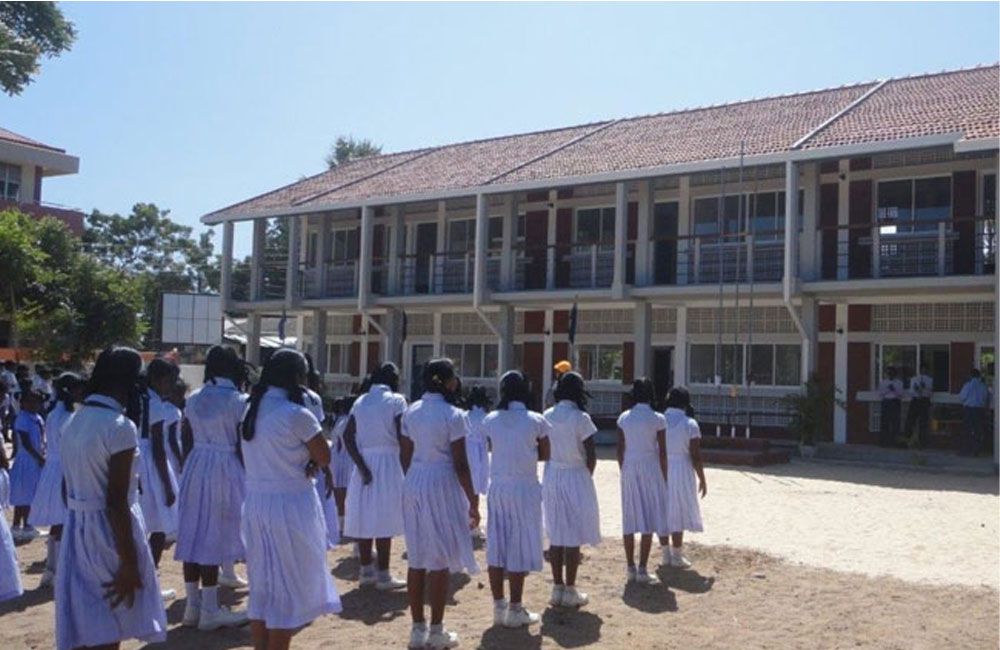
Second Phase of Third School Term Begins Today, Some Provinces Remain Closed
The second phase of the third school term for 2025 officially begins today (16) for all government and government-approved private schools, as well as Pirivenas, the Ministry of Education announced.The reopening had originally been scheduled for December 8 but was postponed due to adverse conditions triggered by Cyclone Ditwah. Under the revised academic calendar, the second phase of the third term will run until December 22, after which schools will close for the Christmas holidays from December 23 to December 28.
Classes for the third and final phase of the third term will resume on December 29 and continue until December 31, marking the conclusion of academic activities for the term.
School holidays will then be observed from January 10 to January 20 to accommodate examinations for remaining subjects of the 2025 G.C.E. Advanced Level examination. The second phase of the first school term in 2026 is scheduled from January 21 to February 13, followed by holidays from February 14 to March 2 for the G.C.E. Ordinary Level examination.
However, the Ministry of Education confirmed that 640 schools in three provinces will not reopen today. Secretary to the Ministry, Nalaka Kaluwewa, stated that schools in the Uva, Central, and North Western provinces will remain closed due to prevailing conditions.
Meanwhile, transport authorities have introduced special measures to support students in disaster-affected regions. The Sri Lanka Transport Board (SLTB) said it will continue to provide free transport services for schoolchildren in impacted areas for the remainder of the year. SLTB Chairman Sanjeewa Nandana Kanakaratne noted that additional bus services have been deployed to meet student travel needs.
The Railway Department has also arranged several extra train services to assist schoolchildren during the coming days. These services will operate along the Main Line, Coastal Line, Puttalam Line, and Kelani Valley Line. Additionally, students will be allowed to travel throughout December using their November school season tickets, the Department said.

Tourists Flock South as Sri Lanka’s Tourism Map Redraws
Sri Lanka’s tourism sector is undergoing a quiet but profound transformation, with international travellers increasingly bypassing traditional urban gateways and gravitating toward leisure-focused destinations along the southern coast and hill country. Provisional data for November–December 2025 suggests that while arrivals have strengthened year-on-year, the structure and value of tourism earnings continue to evolve in unexpected ways.
According to Sri Lanka Tourism Development Authority (SLTDA) provisional bulletins, the country recorded an estimated 225,000 tourist arrivals in November 2025, up from around 210,000 in November 2024, reflecting a year-on-year growth of nearly 7 percent. December 2025 arrivals are estimated at 240,000-245,000, compared to approximately 230,000 a year earlier, supported by strong winter demand from Europe and Russia despite weather-related disruptions in the south earlier in the year.
Foreign exchange earnings, however, tell a more nuanced story. Tourism receipts for November 2025 are provisionally estimated at US$ 360-380 million, marginally higher than November 2024. December earnings are projected at US$ 400-420 million, broadly in line with last year. While volumes are rising, earnings growth remains subdued, highlighting continued pressure on per-capita spending.
Industry estimates show that the average daily spend per tourist has declined to around US$ 145-150, compared to US$ 180+ recorded in the pre-crisis 2018–2019 period. This reflects a demographic shift toward budget-conscious travellers, digital nomads and long-stay visitors who favour experiential travel over high-end urban consumption.
This trend is reshaping Sri Lanka’s tourism geography. Mastercard Economics Institute data confirms a steady decentralisation away from Colombo and Katunayake, whose combined share of card-based tourism transactions has declined sharply since 2019. In contrast, Ella, Ahangama, Weligama, Mirissa and Dickwella have emerged as key beneficiaries of the leisure-led recovery.
Notably, the southern coast has demonstrated resilience even after cyclone-related flooding earlier in 2025. While infrastructure damage temporarily disrupted travel, smaller operators rebounded quickly by repositioning their offerings around wellness retreats, surf tourism and community-based stays. Provisional transaction data indicates that southern towns collectively expanded their share of tourism spending by over 3 percentage points in 2025, underscoring the region’s growing economic relevance.
Policy analysts argue that promoting this shift requires moving beyond arrival targets. Marketing campaigns must focus on yield optimisation, encouraging higher-value niche segments such as eco-tourism, wellness travel and curated cultural experiences. Investments in climate-resilient infrastructure and destination branding will be critical if Sri Lanka is to convert rising footfall into sustainable foreign exchange growth.
As GDP growth moderates toward 3.7 percent in 2026, tourism’s ability to spread income beyond the Western Province may prove vital to economic stability-provided value, not just volume, becomes the sector’s central objective.

Widespread Showers and Strong Winds Forecast Across Sri Lanka Today
Fairly heavy rainfall is expected in several parts of the country today as an easterly wave continues to influence weather conditions across Sri Lanka, according to the Department of Meteorology.
Showers are forecast to occur at times in the Northern, North-Central, Eastern, Uva, and Central provinces over the next few days. In particular, rainfall exceeding 50 millimetres is likely at certain locations in the Northern and Eastern provinces as well as in the Polonnaruwa district.In other areas of the island, showers or thundershowers may develop at several places after 1.00 p.m., the Meteorology Department said.
Meanwhile, fairly strong winds ranging between 30 and 40 kilometres per hour are expected intermittently over the eastern slopes of the central hills, the Northern, North-Central, and North-Western provinces, and in the Trincomalee, Hambantota, and Monaragala districts.
Misty conditions are also likely during the early morning hours in parts of the Sabaragamuwa and Central provinces, along with the Galle and Matara districts.
The general public has been urged to take necessary precautions to reduce potential damage from localized strong winds and lightning associated with thundershowers.

Man Dies After Domestic Dispute in Valaichchenai; Woman Taken Into Custody
A 46-year-old man was killed during a domestic dispute reported from the Vahaneri area within the Valaichchenai police division on Monday morning, according to police.
Authorities said the incident occurred at the victim’s residence, where he sustained fatal injuries during an argument. Valaichchenai Police launched an investigation after receiving a complaint regarding the incident.
Preliminary inquiries indicate that the dispute arose between the man and his wife. During the confrontation, the man had allegedly attempted to attack his wife with a sharp object, after which she responded in self-defence, police said. The altercation resulted in the man’s death at the scene.
The deceased, a resident of Vahaneri, was pronounced dead upon examination. His body has been placed at the Valaichchenai Hospital mortuary for a post-mortem examination.
A 42-year-old woman has been arrested in connection with the case, and further investigations are being carried out by the Valaichchenai Police.

Justice delayed is justice denied
Chairman of the United National Party (UNP) Wajira Abeywardena has said that Sri Lanka’s conviction rate remains as low as two percent, as reported in the media. While Sri Lanka records only a two-percent conviction rate, Japan’s stands as high as 98 percent, according to him.
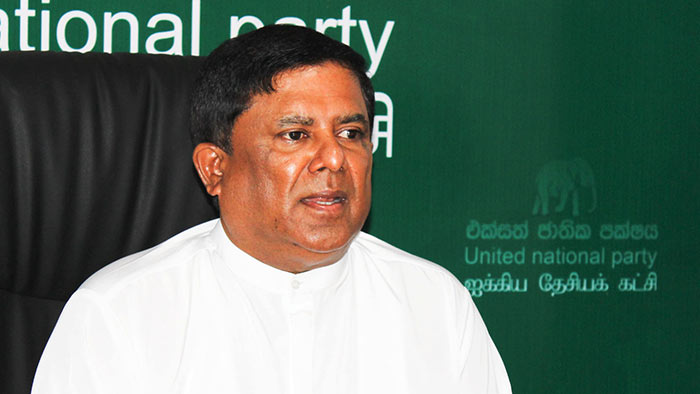
This stark contrast exposes a troubling reality. Most individuals arrested in Sri Lanka are eventually acquitted of the charges brought against them. After prolonged detention—often raising serious human-rights concerns—they ultimately walk free without a conviction.
In our country, investigative officers simply implement laws that were formulated elsewhere. Parliament is the law making body. Law makers make laws. After World War II, new international institutions were created, but we must now ask whether these institutions remain appropriate in today’s context. Human rights conditions differ according to the economic strength of each country. It is a sad reality. These institutions should take such disparities into account, he said as reported in our online edition.
He added: “Our Constitution specifies that it is permissible to keep a person under arrest or detained until investigations are completed. If someone is held for periods ranging from three months to 25 years before the judiciary delivers a final ruling, it is still not considered a rights violation in that sense. It is time to address this. I hope every institution concerned will pay due attention.”
Even before the UNP Chairman highlighted the issue at an event to mark International Human Rights Day, the alarmingly low conviction rate had sparked sporadic debate in political circles. Creating a safe and orderly society requires the elimination of crime, the upholding of the rule of law, and the effective enforcement of legislation. While Sri Lanka has the necessary laws, enforcement remains the greater challenge in certain instances. Procedural delays, weak evidence, and victim withdrawal are widely recognised as major contributors to the poor conviction record.
An acquittal does not necessarily mean the accused is innocent. In many instances, charges cannot be proved beyond reasonable doubt. In other cases, prolonged or flawed investigations undermine the prosecution. Investigative lapses—sometimes stretching over years—have become a systemic problem.
For any society to move forward, justice must be accessible, efficient, and fair. The maxim “justice delayed is justice denied,” popularised by William Ewart Gladstone in 1868 remains relevant today. Beyond improving judicial infrastructure, the government must strengthen its investigative arms, particularly the police, to ensure that the law applies equally to all.
Most cases based on police investigations collapse in court due to weak evidence collection, procedural errors, and poor prosecution practices. Crime control and improving conviction rates are core responsibilities of the police. Enhancing officers’ investigative skills and mandating higher professional qualifications should therefore be priorities.
In today’s technology-driven world, scientific evidence is crucial for successful prosecutions. Forensic laboratories and other specialised units must be upgraded and adequately resourced. Medical experts, proper collection of physical evidence, and accurate analysis all play vital roles in securing convictions. Effective coordination among all these actors is equally important. Without it, insufficient evidence, incomplete documentation and flawed reporting become common reasons for cases to be dismissed and offenders to go unpunished.
Sri Lanka’s criminal justice system must be strengthened by improving the processes involved in investigating, prosecuting, and trying offenders. Only then can public trust be restored, the rule of law upheld, and justice delivered without delay.
Strengthening the criminal justice system must also go hand in hand with broader institutional reforms. One of the main challenges is the severe backlog of cases that clogs the courts. Thousands of files remain pending for years, sometimes decades, resulting in witnesses forgetting crucial details, victims losing interest, and accused persons exploiting loopholes to evade accountability.
Another important area is the independence and capacity of the Attorney General’s Department. Workload on prosecutors should be eased.
At the investigative level, strengthening internal oversight within the police is essential. Allegations of coerced confessions, custodial violence, political interference, and mishandled evidence should not mar the reputation of the police.
Witness protection remains another critical weakness. Many cases collapse because victims and witnesses fear retaliation, particularly in cases involving powerful individuals, drug networks, or organised criminal groups. Sri Lanka does have a Witness Protection Authority, but its operations should be improved. A fully functional witness protection system—with relocation provisions, anonymity options, and psychological support—would encourage more individuals to testify without fear.
(Source - Dailymirror)
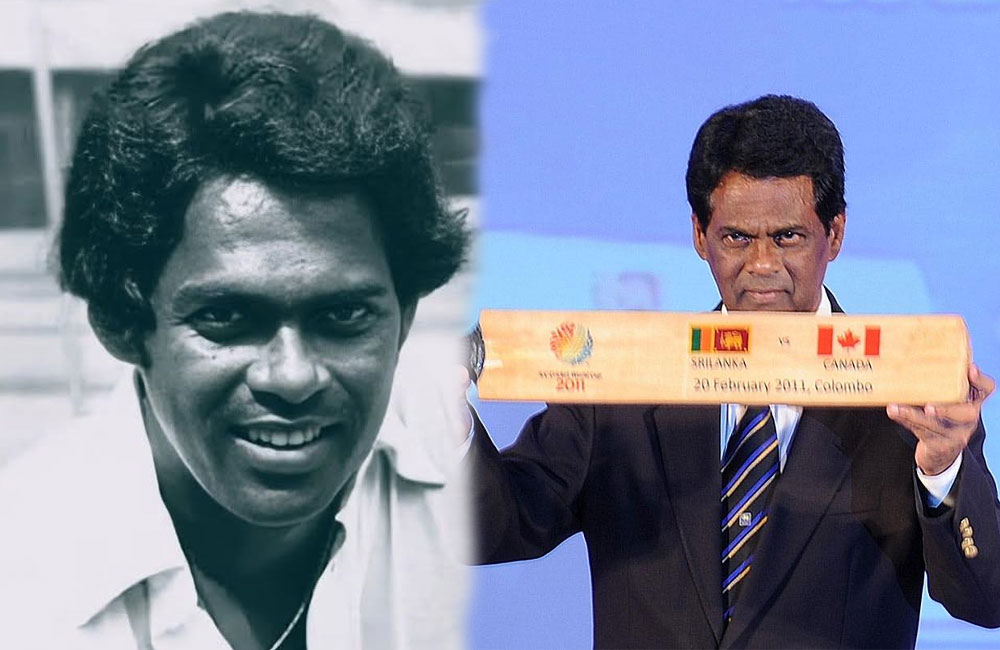
Sri Lanka Cricket Pioneer D. S. de Silva Passes Away at 83
D. S. de Silva, a former Sri Lanka leg-spinner who played a key role in the nation’s first steps into Test cricket and later headed Sri Lanka Cricket, has passed away at the age of 83. Family sources confirmed that he died in London after a short illness.
De Silva was part of Sri Lanka’s historic maiden Test match in 1982 and quickly emerged as one of the most influential figures of that formative period. He went on to captain the national side in two Test matches, earning widespread respect for his leadership and experience during the early years of Test cricket.
He holds several significant distinctions in Sri Lanka’s cricketing history, including being the country’s first One Day International cap recipient and the second player to receive a Test cap. As a leg-spinner, de Silva etched his name into the record books during the 1982 tour of Pakistan by becoming the first Sri Lankan bowler to claim a five-wicket haul in a Test innings. The following year, during the tour of New Zealand, he also became the oldest cricketer to captain Sri Lanka in Test cricket.
After stepping away from international play, de Silva continued to contribute extensively to the sport. He served in various roles such as coach, team manager and national selector, before being appointed Chairman of Sri Lanka Cricket from 2009 to 2011.
Highly regarded for his dedication to the game over several decades, D. S. de Silva is remembered as one of Sri Lanka’s finest leg-spinners and a key architect of the country’s early cricketing legacy.

Former Petroleum Corporation Chairman Arrested on Corruption Charges
Former Ceylon Petroleum Corporation (CPC) Chairman Dammika Ranatunga has been arrested by the Bribery Commission over allegations of financial misconduct. He is accused of causing a loss of nearly Rs. 800 million to the state-owned oil company and is due to be produced before court today.
The Commission to Investigate Allegations of Bribery or Corruption (CIABOC) has arrested former Chairman of the Ceylon Petroleum Corporation, Dammika Ranatunga, in connection with alleged financial irregularities during his tenure.According to investigators, Ranatunga is accused of cancelling three long-term fuel procurement tenders planned for the 2017–2018 period and instead approving spot purchases at significantly higher prices. Authorities allege that this decision resulted in a financial loss of approximately Rs. 800 million to the CPC.
He is expected to be presented before the Colombo Chief Magistrate’s Court later today for further legal proceedings.
Page 31 of 659